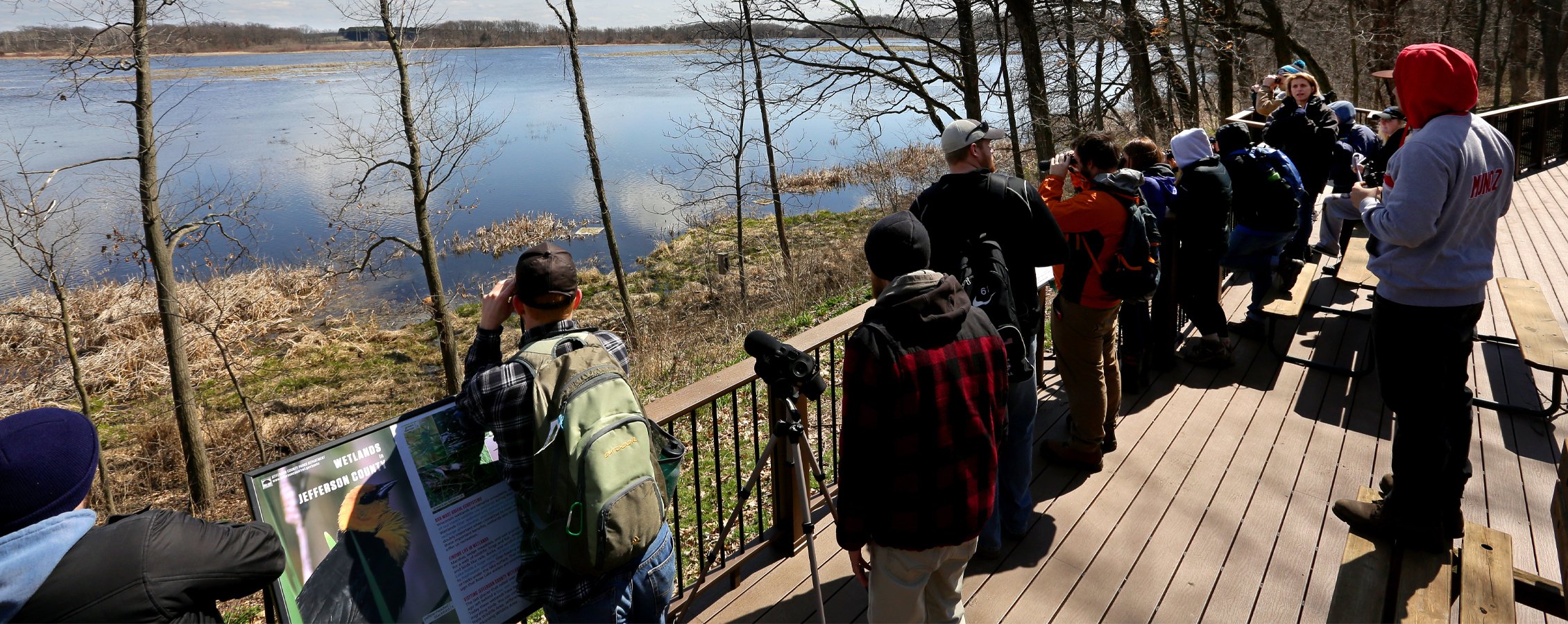DEPARTMENT OF BIOLOGY
Welcome to Biology at the University of Wisconsin-Whitewater, where we are dedicated to providing quality education through hands-on learning, outstanding facilities, and a nationally recognized undergraduate research program, ensuring you are well-prepared to contribute to solving critical global problems. At the heart of our department lies a deep passion for understanding the living world, from the tiniest microorganisms to the grand tapestry of ecosystems that shape our planet.
Our faculty members are not only accomplished researchers but also enthusiastic educators who are eager to share their knowledge and expertise with students through dynamic courses, numerous research opportunities, and hands-on laboratory experiences.
Beyond our campus, we are committed to engaging with the broader community, sharing our passion for biology through outreach programs, public lectures, and partnerships that promote scientific literacy and environmental stewardship.
Our comprehensive programs offer diverse pathways for students eager to launch a career, pursue professional school, or advance to graduate studies. For those fascinated by the function of living things at the smallest scale, our Cell/Physiology Emphasis prepares you for careers in medicine, biotechnology, or physiology research. If you are passionate about conservation and the interconnectedness of nature, explore our Ecology, Evolution, and Behavior Emphasis, which emphasizes field work and a deep understanding of natural systems. If you dream of studying aquatic life from local rivers to the ocean, our unique Marine Biology and Freshwater Ecology Emphasis offers an incredible opportunity, including a required year of study abroad at Deakin University in Australia. Finally, students with a clear focus on healthcare fields such as medicine, dentistry, or veterinary science will find an intentional path in our Pre-Biomedical Professions Emphasis. We also offer a Biology Science Education major for future middle and high school teachers and participate in the collaborative, online Master of Science in Applied Biotechnology program for those pursuing an advanced degree.
Contact us
Heather Pelzel
Department Chair & Professor
Phone: 262-472-5134
Location: Upham Hall 320A
Amber Kammeraad
Department Assistant
Phone: 262-472-1092
Location: Upham Hall 320
UW-Whitewater offers students a wide variety of scholarships, both through the university, individual colleges, and departments. The Department of Biology has a number of scholarships and awards geared specifically toward our students, including:
- Joseph & Madeline Chopp Scholarship
- J.A. Cummings Biology Scholarship
- Y.W. Fok Memorial Scholarship
- Willard Gross Memorial Scholarship
- Dr. Dan and Jean Sable Scholarship
- Silver/Savage Literature, Writing and Science Scholarship
- James S. and Susan R. Schlough Scholarship
- Donald J. Stevenson, MD. Memorial Scholarship
- A.A. Upham Scholarship for Science
- UW-Whitewater Foundations Scholarship for Outstanding Junior
from the College of Letters and Sciences - Dr. Dionne A. Harrell Scholarship
More information about these and other scholarships is available through the scholarship portal.
The Department of Biology supports a number of student clubs and organizations, including Terrestrial and Aquatic Ecology Club an information and community service organization, P.H.A.T Club (Pre-Health Associates of Today), Pre Health Club, and Beta Beta Beta.
Learn about the Marine Biology Program
UWW offers students in Wisconsin and surrounding states a unique opportunity to obtain a Bachelor of Science Degree in Biology, with an emphasis in Marine Biology and Freshwater Ecology in collaboration with our sister institution, Deakin University, in Australia. UWW sends approximately 10-15 student each year to this program.
Basic curriculum
- 3 years at UWW – See Marine Biology and Freshwater Ecology checklist
- General Education
- Foundation in Biology
While at Whitewater, students take courses that focus on various aspects in the fields of Ecology (including Aquatic Ecology), Organismal Biology, and Evolution. Much like the Ecology, Evolution, and Behavior emphasis, many of the associated courses have indoor or outdoor laboratory components, which focus on the applied aspects of this profession. All students are required to take a “Field Methods In Ecology” course, which is team taught by Ecology Faculty and exposes them to various techniques used in ecological work. Available courses include “Aquatic Toxicology”, “Water Resource Management” and advanced Ecology courses. Students in this emphasis are not required to have a minor, as additional coursework is completed at Deakin University.
- 2 semesters at Deakin University – Typically after junior year
- Students choose courses with consultation of program manager
- Assortment of electives in a wide variety of subjects
- Required to take Marine Invertebrates or Marine
- Botany
Each Deakin class is 1 unit. Equivalent to 3 credits at UWW. Need 4 classes to maintain full-time status at UWW. This additional coursework focuses on aquatic biology (particularly related to marine ecosystems) over a wide range of topics from Fish and Marine Mammal Biology to aquaculture. Students in this emphasis are also strongly encouraged to take‐part in undergraduate research with faculty. Such endeavors have frequently resulted in professional presentations and publications. There are also very popular study abroad courses which travel to Yellowstone National Park and Ecuador (see links under “Trips”). Many students within this emphasis are active in the student Ecology Club, which frequently takes part in professional volunteer opportunities and trips to museums, zoological gardens and State Natural Areas. Please be sure to review the UWWhitewater/Deakin University Marine Biology Facebook page for more information.
How to prepare for going to Australia
GPA requirement
UWW Biology requires 2.75/4.0 GPA to be accepted into the program. If a student falls below a 2.75 GPA an appeal can be made to a committee made up of UWW faculty (generally biology professors). Deakin requires a 2.6/4.0 for international students. Deakin has refused students below a 2.6 in the past.
Last semester at UWW
Each student must speak with the program manager (currently Dr. Bruce Eshelman) within the first 2 weeks. This meeting will begin the paperwork process required to attend Deakin University. Students also choose classes they will take at Deakin.
Cost of the program
Per unit cost - International students are charged for each unit of coursework they take. UWW students get a bit of a break on the cost. Fees are reduced for each student depending on the number of students enrolled in Deakin that year.
Exchange rate – Students need to factor in the exchange rate of US Dollars to Australian Dollars. This is often the biggest factor determining total cost and recent history has shown this can vary up to ~10% over the course of a year.
Example tuition 2017-2018 – First semester Deakin Program fees $7,449.02 USD. Second semester estimated around $6,400 USD. This is only tuition. We anticipate an increase for future semesters.
Example Room and Board – A recent student (2018-2019) received a quote of $10,608 AUD ($8,313 USD) for 12 months of room and board. Students usually live in campus dormitories during their time in Australia, but many students have chosen to live off campus. Meal plans are available, but the dorms have kitchenettes, so student can cook for themselves.
Specimen Collections
The Department of Biology Natural History Specimen Collection contains thousands of catalogued plant and animal specimens. These include both teaching and research specimens that are available for student and professional use. Although most of the specimens housed in the collection were taken in southern Wisconsin, the collection contains specimens from throughout the United States.
The collection is divided among several areas of natural history:
Plants: Herbarium specimens
Vertebrates:
Mammals
Birds
Reptiles and amphibians
Fish
Invertebrates
Fossils and other biologically relevant rock specimens
Plants: The herbarium collection consists of approximately 6,000 mounted plant specimens. There is a significant student collection for plant taxonomic study. In addition, there are specialized collections of Wisconsin sedges and cattails due to the work of Dr. Galen Smith. The botanical specimens are curated by Dr. Nicholas Tippery (tipperyn@uww.edu)
Vertebrates: The UW-W Department of Biology is fortunate to have many taxidermy mounts, primarily birds, prepared in the mid -1800's by the famed naturalist Thure Kumlein (see here). The vertebrate collections have also been expanded by past faculty of the UW-W Department of Biology, most notably Willard Gross (freshwater fish), Jack Cummings (a sizeable collection of marine fish), mammals (George Seeburger). There is also a collection of several hundred herpetological specimens. The vertebrate collection is curated by Dr. Joshua Kapfer (kapferj@uww.edu)
Invertebrates: The invertebrate collection consists of both mounted and jarred specimens (including a sizeable marine invertebrate collection). The invertebrate collections are curated by Dr. Nadine Kriska (kriskan@uww.edu)
Individuals and small groups may view displayed specimens when Upham Hall is open. For further information about access to the collections or taxa databases, please contact the appropriate curator.
We accept donation of biological collections, specimens, and taxidermy mounts if they are accompanied with appropriate data (particularly the location and date of collection), and if the specimens were collected legally. We prefer to have collection permit numbers or hunter tags associated with the specimens, if possible. Further inquiries about possible donation of specimens should be directed towards the curators or collection manager (Biology Department, biology@uww.edu).
Funds were donated by Dr. Jack Cummings and family to help support the collection. Although several taxonomic groups have been digitally catalogued, endeavors are currently underway to create digital databases of all remaining taxa groups.
Decisions about the well-being of the collections are made by the Biology Department's Specimen Collections Committee. The current members include:
- Dr. Elisabeth Harrahy
- Dr. Joshua Kapfer
- Dr. Kerry Katovich
- Dr. Nadine Kriska
- Dr. Nicholas Tippery

Explore our academic programs

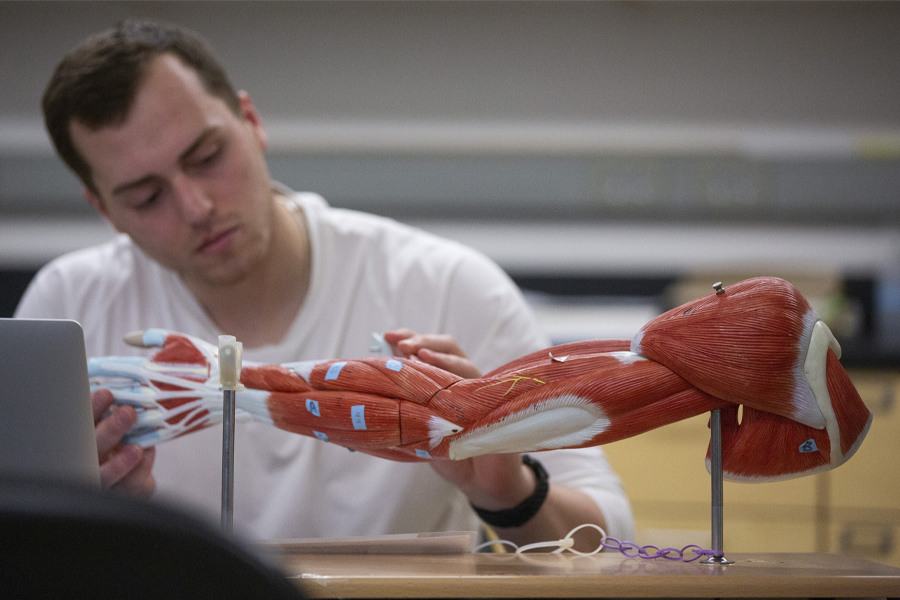
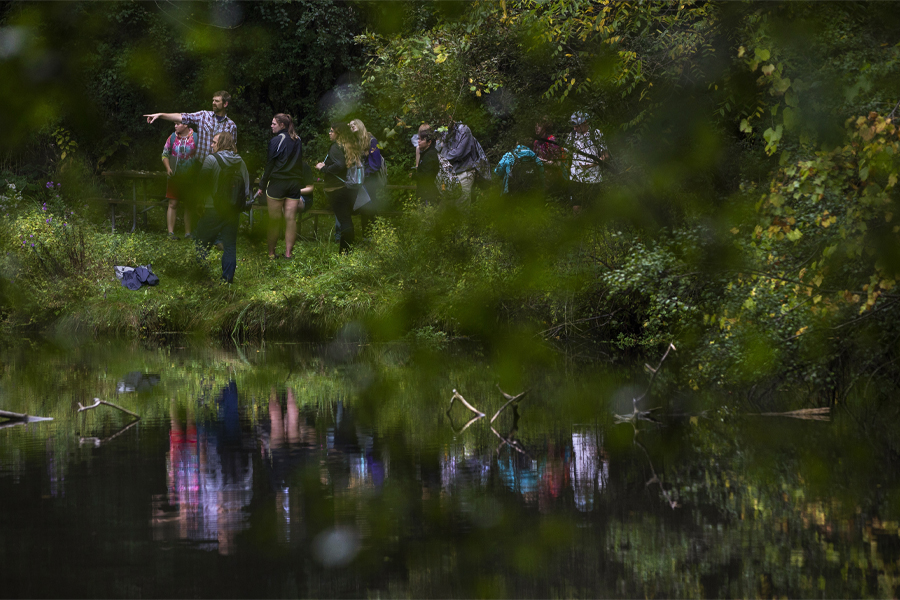
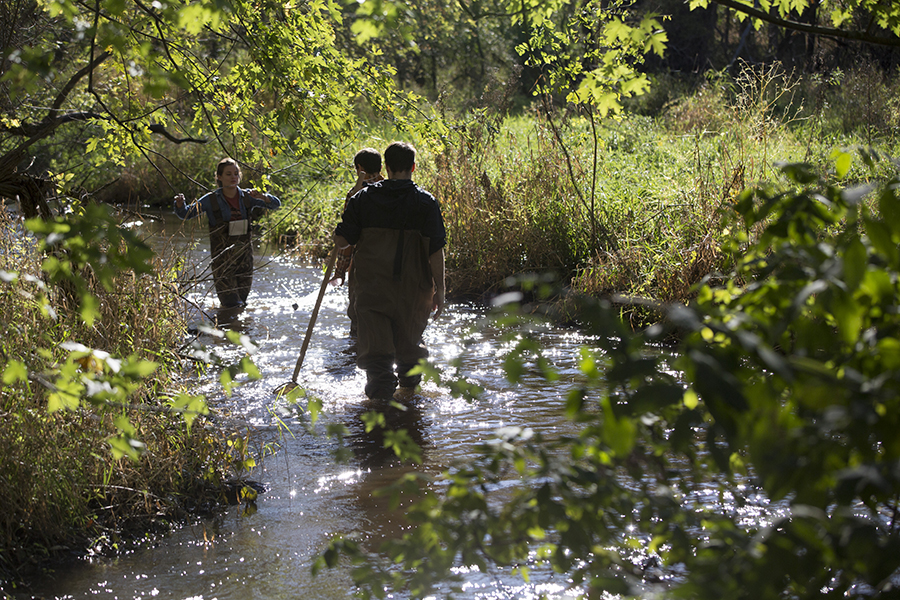
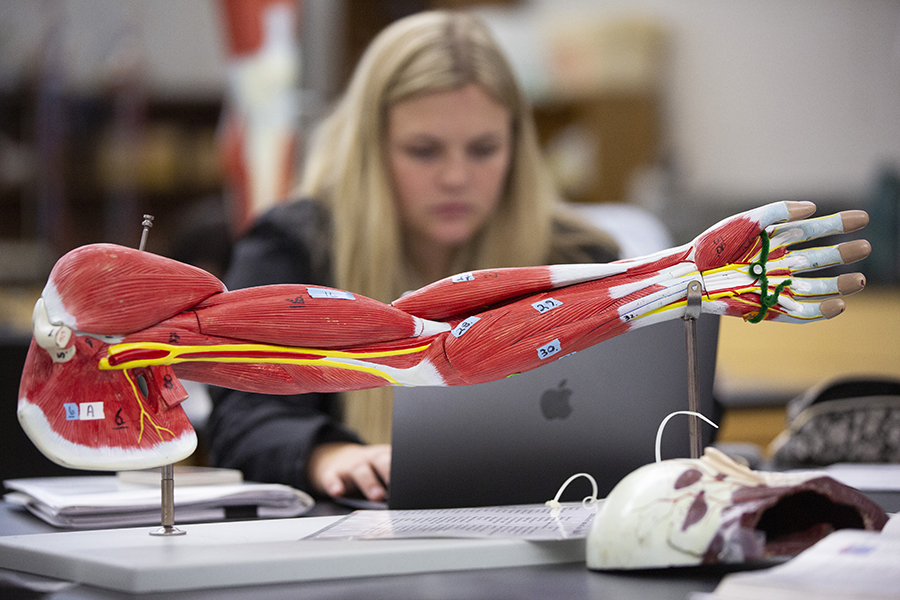
Bioinformatics
MinorHave an interest in biology? Good at organizing data? If yes, then a minor in Bioinformatics is right for you. You will take courses that will allow you to gain proficiency in subjects such as programming, applied statistics, data visualization, and other techniques to prepare you for a career in aiding scientific discovery.
Biology (Cell Biology and Physiology)
Major/Emphasis, MinorStudy biology on the smallest scale with an emphasis in Cell Biology and Physiology. This specific emphasis will allow you to take courses on topics such as microbiology, anatomy, molecular biology, neuroscience, and more, all giving you an understanding and familiarity with many different types of biological studies.
Biology (Ecology, Evolution and Behavior)
Major/Emphasis, MinorDo you wish to study the interconnectedness of nature and the biological reasons behind plant and animal behavior? With an emphasis in Ecology, Evolution, and Behavior Biology, you will take courses on many relevant biological studies, such as zoology, botany, aquatic organisms, and environmental studies, all preparing you for a career in studying the life around you.
Biology (Marine Biology and Freshwater Ecology)
Major/Emphasis, MinorWater — it indicates the presence of life on our planet, what we need to consume to survive, and is home to many different fascinating organisms that are often overlooked or even undiscovered. With an emphasis in Marine and Freshwater Ecology, you will take courses in aquatic biology, ecology, water geography, zoology, and more.
Biology (Pre-biomedical professions)
Major/Emphasis, MinorWith a Pre-biomedical Professions emphasis, you will study a plethora of biology career-related subjects such as organic chemistry, writing in biology, genetics, applied mathematics, and anatomy, all to prepare you for the biomedical field.
What does my contribution directly support?
How much money can make an impact?
Donate now to support the Department of Biology at UW-Whitewater
If you're interested in starting a scholarship or making a pledge, please contact the UW-Whitewater Foundation, Inc at 262-472-1105 or through email at foundation@uww.edu.

